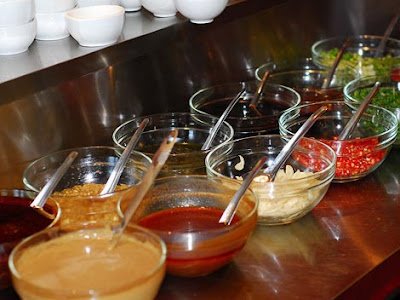Chairman Mao famously said that women hold up half the sky. And he was not even a bra burning feminist of the seventies. Just a man who understood the importance of women in the growth of a society.
Historically, Chinese women were among some of the most oppressed in the world. From foot-binding, child marriage, illiteracy to forced prostitution. They were kept at the lowest rung of society for the longest time.
But women in modern China for most parts do not even closely resemble their counterparts of the past. Implementation of equal rights for women in Chinese society affected fundamental emancipation of women in all aspects of political, economic, social and family life. And this single-handedly transformed the story of contemporary China.
62 years after Mao’s revolution China has become a force to reckon with and after 64 years of Indian independence we are still struggling to provide basic rights for women who constitute almost half the population of India!
I have been contemplating writing this piece for a while, but in a completely different context. About why I like living in China, with all problems ensuing. I still prefer this place because I do not have to look over my shoulder and watch out for which pervert on the road is looking to have his share of fun. Like every other girl/woman who has grown up in India, I have had my share of being groped, eve teased, bullied and what not. I guess in India it is your right to passage as a woman to undergo this demeaning ritual.
And I’m not the only Indian woman in China to state personal safety as a reason for their love for China. It just tops the list among other important parameters. We constantly compare ourselves to China in terms of our GDP, strength of our economies, savings rates, trade and investment etc. Therefore it only seems fair to compare ourselves to China with regard to safety of women, especially after the Guwahati and Mangalore incidents. By that I don’t mean to make little the hundreds of rapes, molestations, sexual assaults and domestic sexual violence that happens India, every single day.
I am constantly appalled at the gross negligence and the sheer brutality that women are subjected to in our country. What I want for Indian women is to be as safe as safe as I am in China. Why can a country that a lot of Indians look at with disdain protect its women better?
Why is it that I can go out at 11 in the night to look for a cake for a friend’s birthday in the company of two other women and be dropped back by a cab driver that happens to be a woman and not be frightened about how late in the night it is. I can be drunk as a skunk and hail a cab back home at any time of the night and be sure that I would reach home safe without any male escort. I can wear whatever I please and not get stared at whistled at or even eve teased.
The answer lies in China’s laws and their implementation of them. Committing rape in China may result in sentencing of a fixed-term imprisonment from three years to ten years, and if one of a list of “serious circumstances” spelt out in The PRC Criminal Law happens, a fixed-term imprisonment from ten years up to the death penalty may be imposed. And the death penalty is often used to act as a deterrent. Let me be clear. I oppose the death sentence in principle. But here in China, it is routinely handed out in rape cases and it is highly-publicized by the state media which puts the fear of god in potential offenders.
There are high conviction rates in crimes against women which is one of the biggest differences between India and China. There is of course a tremendous fear of the law. Then, there’s also surveillance. If someone tries to eve-tease or molest you in any public transport in big cities like Beijing and Shanghai, all you need to do is call the police hotline and before you know it, the cops will be there at the next available stop. It’s as fast and simple as that. And unlike in India, they take the side of the victim not accuse you in turn.
But here is what baffles me. Despite the extraordinary progress of women in China, the country’s body politic has far fewer women than men. And it gets fewer as you go to the top. In the National People’s Congress, China’s parliament, about 20 percent of all members are female. One step above that, in the CPC Central Committee, only 13 of the 204 members are women. That’s less than 10 percent. And in the all-powerful politburo, there are no women at all. Contrast that with India. We just had a woman President, have had a really powerful woman Prime Minister in the past, and today, for all practical purposes, the country is run by a woman. The tragedy is none of these women in powerful places have made the lot of womankind in India any better.
The success of a country depends on how well it treats its women and in that regard India will always come up short.
Why chinese women fare better
# Primary school participation, Net enrolment ratio (%), 2007-2010*, female -99
# Youth (15-24 years) literacy rate (%), 2005-2010*, female -99%
#Women make up 49% of China's population and 46% of its labour force, a higher proportion than in many Western countries.
# China has over 29m female entrepreneurs. That's a quarter of the national total according to All-China Women's Federation.
|









